Luc Besson has had a unique career. He’s mainly a Producer these days but still takes up writing duties and will occasionally direct. He’s probably best known for either his big-budget Sci-fi films such as The Fifth Element and Valerian; or his mostly throwaway Action films. The best of this mixed bag are films such as The Transporter, Taken and Kiss of the Dragon. What you might not know, is that Besson started his career by making some very emotionally charged, yet still uber-cool, exquisite indie films. One of the best examples is Leon.
His first film of note is 1985’s Subway; a French Indie Film about outcasts who live in the Metro Underground in Paris. It’s cool, quirky and still has a cult following to this day. For his next project, 1988’s The Big Blue, Besson drew inspiration from his first career as a Diving Instructor. His parents were both Divers and this informed most of his upbringing. Unfortunately, due to an accident, he was unable to dive again and this is why his focus shifted to Film in the first place. There are many thematic references to this throughout The Big Blue, and it’s clearly a love letter full of feeling towards the profession. The ending also shows a strong yearning from Besson to be able to participate again.
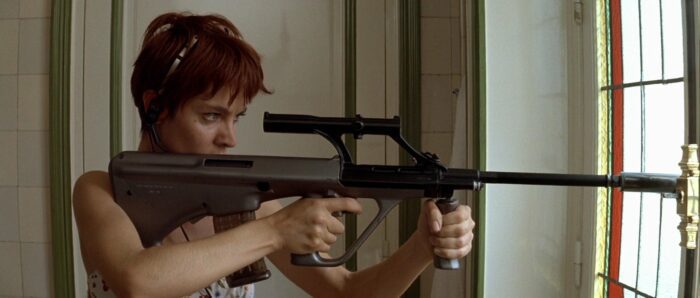
This brings us to 1990’s Nikita, which is an incredible film in its own right but introduces us to the character of Leon for the first time. However, in this film, he is called Victor. The character’s played by Jean Reno, who’s worked with Besson on all of his projects up to this point. I won’t go into much detail on Nikita because it deserves an article of its own. What I will say is that it almost single-handedly creates the female assassin/femme fatale archetype we know so well today.
Victor’s character is referred to as a “Cleaner,” something that also makes the jump across to Leon. Although his role in Nikita as a Cleaner is more literal, as he is called in when a job goes sideways to tidy up the mess. In Leon, the term is more of a code word for Assassin. The mess that needs cleaning for Nikita is human bodies, which he robotically tries to dissolve in a bathtub with acid.
This reduces even our leading lady to tears, even though she has been trained to be an unemotional killer. His ruthlessness goes on to create conflict between the two and pushes Nikita to her limits. Victor only appears in the final act and only has a small part but has a brilliant entrance and leaves an impression. He was obviously in the film enough for Besson to want to give him his own movie to expand on his character.
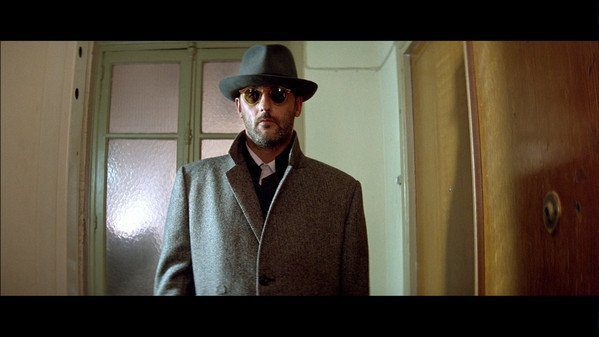
Besson relocates the eponymous Leon to New York for his own 1994 film and subsequently changes his nationality to Italian. If you had seen the character in Nikita, you might expect that this would be a pure Action romp with a narrative where the Cleaner, formerly known as Victor, would have a whole film to unleash himself all over New York. This would certainly be in line with the action movies he is known for later in his career. However, thankfully, he takes a much different approach. What we get is a tender story of two outcasts drawn together through extenuating circumstances.
Leon’s path to connecting with humanity again comes in the form of Mathilda, played by Natalie Portman. She was cast in the role at the ripe young age of 11 and gives what I think is still one of the, if not the best performances of her career thus far. No story would be complete without a villain and it would have to be a good one to challenge Leon’s particular set of skills. Luckily for us, we get more than we could ever have hoped for in the form of Gary Oldman’s corrupt cop Stansfield.
As with Portman, Oldman gives one of the performances of his career, one which already has an abundance of standout roles. Besson gives him free rein, and many improvised moments end up being the most memorable of the whole film. Reno puts in a great performance also but what we have here is a Batman ‘89 situation, where the villain has so much more to work with.
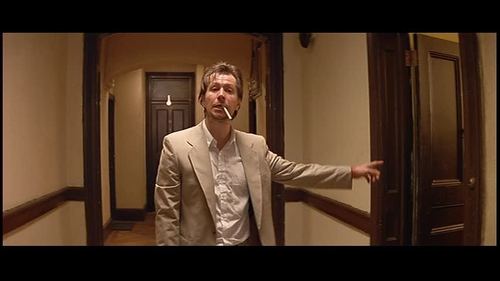
At the start of the narrative, we find Leon in the state of a social recluse. The only times he seems to venture out of his flat is to meet his handler for assignments and to get groceries. His handler Tony is an older Italian man, who Leon meets at his restaurant in Little Italy. They have a somewhat suspect relationship. Leon seems to see Tony as some kind of father figure, whereas I get the sense that he uses Leon mainly for his impressive talents. It’s not hard to believe that Leon would hold him in such high esteem when he seems to be one of the only people that he ever interacts with. In a deleted scene, Tony mentions something about how Leon killed someone related to a woman he loved, and this is the reason for his exile.
Leon and Mathilda are neighbours but aside from a few brief exchanges with each other on the stairs of their building they hardly know each other. However, it’s clear to see that Mathilda wants to strike up a friendship from these interactions. This yearning is born from her dismal home life with a callous family. Redemption is a strong theme that runs through many of Besson’s films and the scene where Leon and Mathilda’s friendship begins is a powerful start. Mathilda returns home to find that Stansfield has brutally murdered her whole family. Mathilda’s father is the worst kind of guy. One that not only gets involved in dealing drugs with crooked cops but then also tries to steal from them. Despite his stupidity, no one deserves what he and his family gets.
Mathilda sees that a cop is posted outside her door and she tries to act natural and pass by unnoticed for fear of meeting a similar fate as her family. This proves somewhat difficult, as she sees the corpse of her father through the open front door as she passes. Despite this, she keeps her cool just long enough and goes up to Leon’s door instead and rings the bell. Leon, having already sensed trouble, is the other side of the door spying on the situation through his peephole. When the bell rings, he struggles for a time to decide whether to get involved, this clearly going against his nature. Mathilda weeps quietly and continues to ring, begging under her breath for him to open up. Not just the door but himself too. Finally, just as the crooked cop in the hallway starts to get suspicious, the door opens and white light washes over her, a symbol of salvation and her face relaxes.
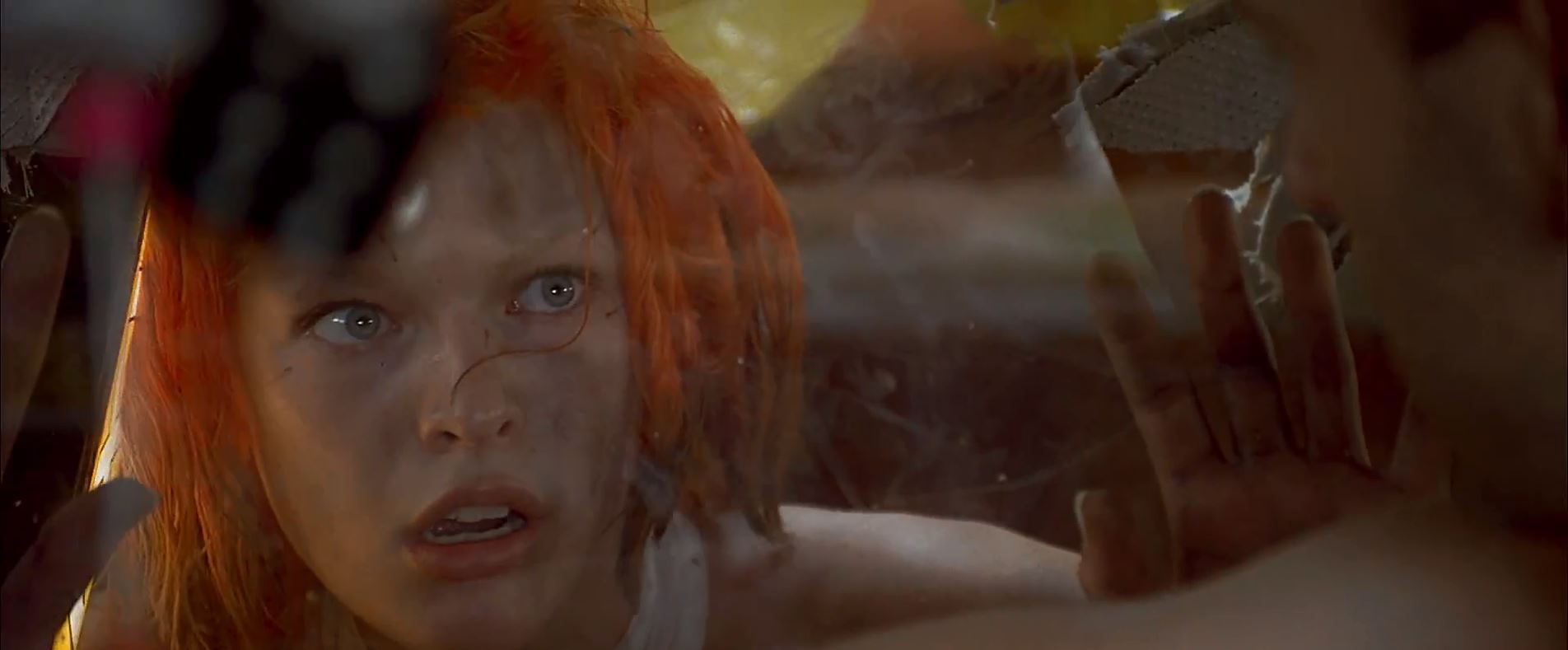
This scene perfectly reflects a scene in The Fifth Element; where Korben is also deciding whether to get involved and save Leeloo after she falls into his cab while running from the law. Nikita’s whole character arc is also one of redemption; her work as an assassin for the government is recompense for her crimes as a junkie. The idea of an unlikely friendship between someone who has distanced themselves from society and a young innocent is nothing new. However, there’s something so fresh about this friendship. There’s nothing contrived or forced in their joyful moments together and their interactions are free of clichés.
A particularly poignant scene is one where they are playing charades. Mathilda dresses up as every famous character she can think of including Charlie Chaplin, Marilyn Monroe and Madonna. He finally recognises Gene Kelly of all people, due to the fact that he occasionally goes to the cinema alone and we see that he was watching a Kelly film earlier in the narrative. His wide-eyed joy while he is there is sweet and touching—a sign that he’s not devoid of emotion. The charades scene equally does a superb job of illustrating just how out of touch Leon is with the rest of the world.
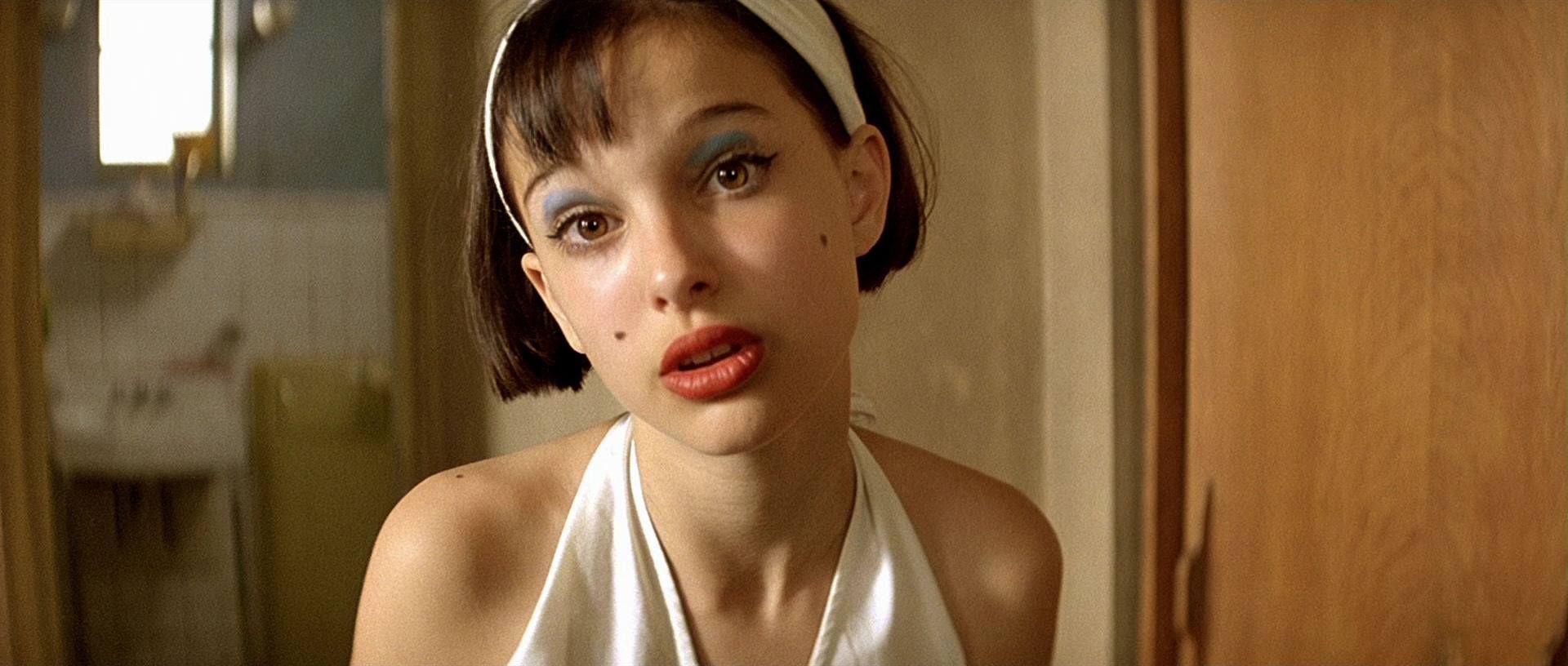
Another touching moment is when Leon’s sleeping habits are affected. He usually sleeps sitting in a chair, in the corner of the room, with his sunglasses on and a gun in hand before Mathilda came along. This is clearly due to paranoia caused by his line of work. Eventually, due to his new friendship, he slowly unwinds enough to start sleeping in a bed again.
Mathilda quickly discovers Leon’s profession and develops the idea that she wants to do what he does for a living. Her motivation is more about imitating him in general rather than a desire to kill people. Although, she does swear vengeance on the killer of her family. After doubting she has the mettle, Mathilda empties a gun out of an open window on to the street in broad daylight. Leon is suitably stunned and it forces them to relocate. After wearing him down for some time, he eventually concedes and begins to teach her. This is also more about him finding a way for him to bond with her than anything else.
Leon decides to go after some of the men that were involved in the slaughter of Mathilda’s family as they broke his golden rule: “No women, no kids.” Things are rosy until Mathilda tracks down Stansfield to his Police headquarters and hatches the brilliant scheme of trying to hit him there. He obviously gets the drop on her and she’s held until Leon comes to rescue her.
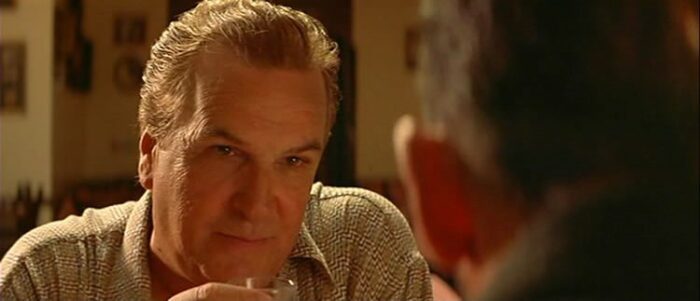
This sparks a chain of events. As they have gathered that the hitman is Italian, Stansfield and his goons visit Tony and torture him for the whereabouts of Leon. Mathilda is snatched from outside their new dwellings and when Leon doesn’t hear their secret knock, all hell breaks loose. SWAT teams are sent in to capture Leon, but he proves to be the most difficult of targets. He manages to recover Mathilda and find a safe way for her to escape. Just before she does, they share a heart-wrenching moment where Leon promises he will find a way out and see her again:
“You’re not going to lose me, Mathilda. You’ve given me a taste for life. I want to be happy, sleep in a bed, have roots. You’ll never be alone again, Mathilda.”
He too manages to find an ingenious way to escape himself, by dressing as one of the SWAT team and pretending to be one of their injured. Leon slips away during all the commotion but his plan is not quite clever enough to get past Stansfield. He follows him out of the building and guns Leon down from behind. The combination of a slow-motion shot from in front of Leon and the music that slows down with it is devastating. You don’t see the bullet hit him from behind and you’re praying it hasn’t even while Leon is falling to the ground. Stansfield stands over him and after Leon identifies him, he hands him something saying the iconic line:
“This is…from…Mathilda.”
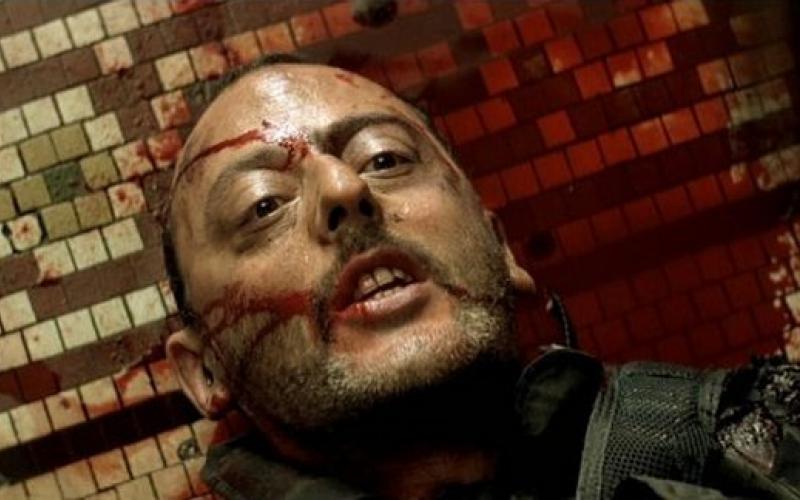
Stansfield opens Leon’s hand to reveal an unpinned grenade, to which he replies: “Shit” just before it detonates.
Never have I ever wanted a character to survive more in any film. The cruelty of killing such a likable anti-hero, just as he had discovered a new lease of life with someone he loves, is unbearable. However, In the end—even though I don’t want to admit it—it’s right. Mathilda finds refuge in a troubled girl’s school of some kind and this is where we leave her. We are left with a feeling that although this will always be the most significant chapter in her life, it will one day be just one of many.
The characters, their performances and dialogue are what ultimately make this film so memorable. Not only was this film of its time in 1994 but also of its time in Besson’s career. This makes it a rare example of when many factors came together and produced something beautiful. I can only hope that Besson has some kind of wake-up call and returns to doing what he does best before the end of his career. Because if there’s one lesson to take away from this story; it’s to make the most of the time you have left.




